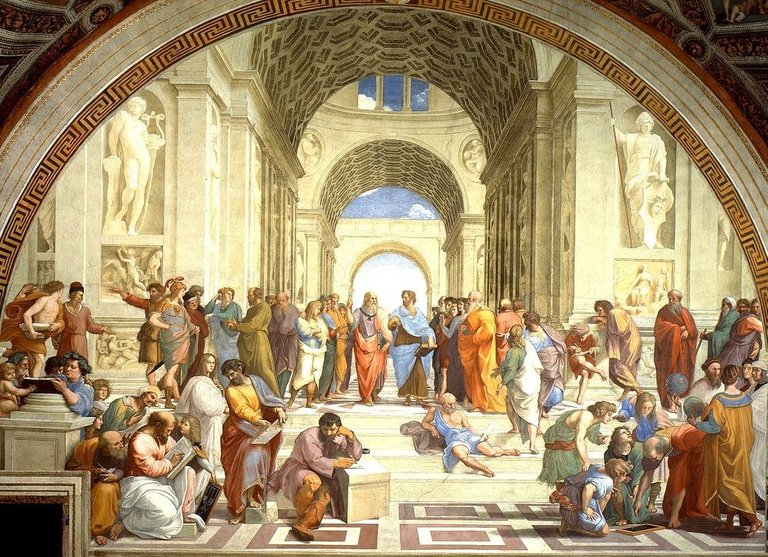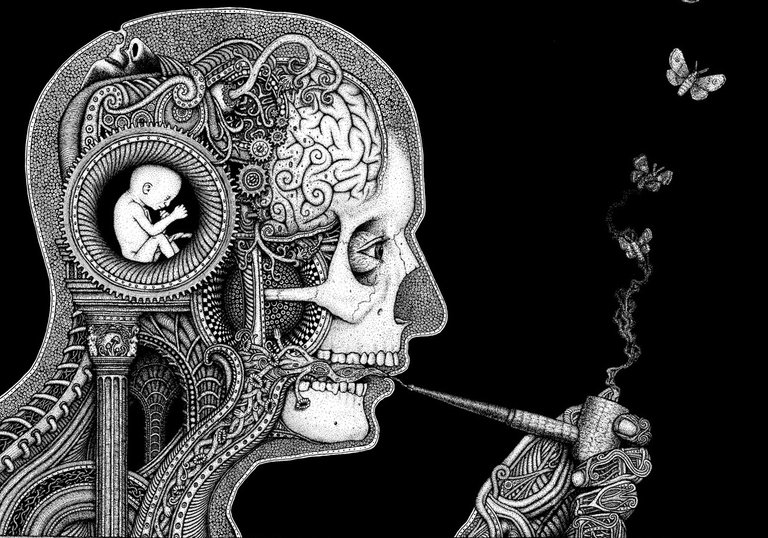I am writing a mini series of three writings on geometric morality philosophy. His name was taken from the opening statement of Spinoza's book, Ethica. I will write the views of famous thinkers on various concepts and situations and try to examine these views.

Source
Spinoza, "Free will is only compulsory, not free." says. Because he argues that it is a certain way of thinking, just like reason. All the choices and decisions are always based on a cause-and-effect relationship. No choice is made to the obligation to create any end result or cause consequence. So every choice depends on a reason. And the result that comes out of this selection is based on the previous selection as a reason. So, Spinoza says that this idea can not be free on the road, but it can be compulsory.
In this regard, Descartes has a beautiful example. One day a king forbids a duel in his country. No reason will be taken as an excuse. Those who duel against the rule will pay a heavy price. The king also knows the existence of two people who are enemies of each other in the country. If these two people face each other, they will definitely argue and duel. Then the king sends the city where the other two live. When the person sent by the king meets the enemy, they start to argue and start dueling.
In this example, the king shows two different wills. First, they banned dueling in the country and then forced two people to duel. It puts a rule that the people must obey, and it causes them to obey. The first one had to exist in order to be able to show the second will. The two men who are enemies also show two different wills here. They are guilty of breaking the law of the King. After all, they knew how to make this choice. But the king himself, who brought them face to face. So they did not have the intention of confronting and dueling at first. An event that took place outside of their wish was the reason for their conclusions. If the king did not bring them together, there would be no duel.

Source
As it is understood from this example, we can said that the choice and the decision of the person are two basic things.
- The previous election is for someone to be the reason for the new decision.
- A choice and decision that external forces create and impose, is the reason for someone's new decision.
This is a product of deterministic conception. He is a deterministic thinker in Spinoza. Pierre-Simon Laplace, a mathematician who also adopted adopted determinism, believes that this state of free will is on a larger scale and has a universal structure;
The present state of the universe is the result of the previous state of the universe; the cause of the next situation.
This is part of Simon Laplace and Simeon Poisson's "machine-like universe" model. As history progressed and science developed, it lost some of its views in determinism and began to prove some of its views. I think this is related to the fact that those who defend Determinism are generally scientists.
This new subcategory, called Quantum Determinism, signified Spinoza's work in support of his views on free will. Such that; EEG (electro encephalography), Gamma Waves and FMRI (functional magnetic resonance imaging). We learned that on this point the decisions were actually taken by subconscious and consciousness took it into practice after 6-8 seconds. Hence the views that free will is not real have begun to strengthen. What's your opinion? How much do you think we share in the decisions we make?

I'm a slow walker, but i never walk back. Have a good day ^^
Good and short explanation, congratulations. I think that there is a huge paradox in this issue.
It seems that we are doomed, or we should re-think how could we conceive our freedom in a way that allows us to avoid this uncomfortable paradoxes.
Absolutely! It's look like a paradox.
Very good article. Sometimes I think that we are what we are with our inborn genetic, influence of our parents and friends, education, our childhood plays important role, etc. And all these thing combined with our actual mood and situation fully determines how we will react and choose to act or think in certain situation. There is no other way, we are ehat we are and this is our personal fate when it comes to choosing or arcting. So maybe there is no free will at all. But we should at least pretend that there is.